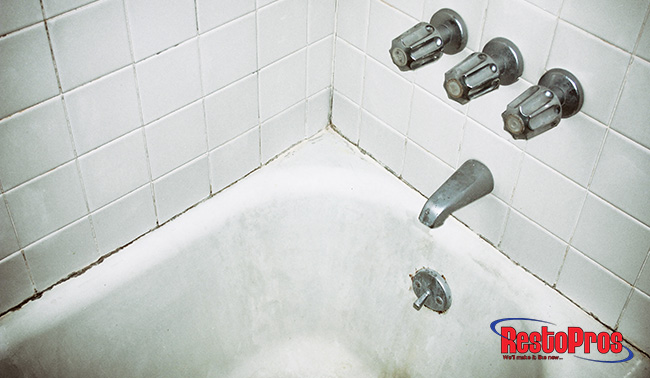
It’s been an uncharacteristically wet summer in the Dallas/Ft. Worth area this year. With all the rain, flash flooding and humidity, the possibility for mold growth in (and outside) of the home has dramatically increased. Leaks in the roof and cracks in the walls can easily be compromised by the humid weather, allowing mold to infiltrate and proliferate inside a home. Even without leaks, your home and its exterior are more susceptible to a mold outbreak due to the humidity in the air. Because of this, it is important to know where the major areas for mold growth can be found. Being proactive before a potential outbreak can get out of hand will save you a lot of time and money in remediation and foundation repairs. This weekend, go through the following list and check your home for signs of mold.
Attic
If you have had problems with roof leaks, this is the first area to check for a potential mold infestation. Mold thrives in damp, humid spaces and Dallas/Ft. Worth attics without fans or climate control should be a major concern. If there doesn’t appear to be any mold, but the ceiling or walls exhibit signs of water leakage, consider drying the area out by moving air through with a fan. Have a licensed roofer check for leaks immediately.
Ventilation Ducts
Ducts are another problem area for mold growth. Ventilation ducts and, to a lesser extent, HVAC ducts often contain the right combination of warmth and vapor to compel cold growth. Checking them for mold can be tricky, but removing vents and grilles and exploring the attached vent with a flashlight is a good start. Mold inside ductwork is very difficult to fins and contain. If you see signs of an outbreak, contact a specialist to test or treat the area.
Windows
Older windows that have cracks in the framing or damaged jambliner/weather stripping are easy targets for mold growth. Do a thorough check of all the windows in your home, opening them to check for contamination in the jambs (vertical areas). If there is furniture obscuring part of the window or areas close to it, move it out of the way. Mold can grow around window areas, especially window panes that are often affected by outside humidity. The water that collects on them can run, compromising the wall area below.
What to do About Mold Growing on Windows
Bathrooms
These are the rooms that are most frequently compromised by mold. The constant use of the bath or shower in an enclosed space, even with strong ventilation, can promote an outbreak. Check every corner of the room including cabinets – and look behind artwork on walls. Make sure that after a bath or shower that the ventilation stays on with door open until the humidity has been removed from the air.
Doors
The wet summer can be especially hard for doors in Dallas/Ft. Worth. Wood doors and doors with wood framing can very easily warp, leaving small cracks for the humidity to infiltrate the home. Check for mold on all the doors to house and any hinged garage or utility doors outside.
A/C Window Units
If you live in a home or apartment with an A/C window unit, give it a thorough inspection – both inside and out. Units that “sweat” or constantly leak are prone to mold growth. A rainy, humid summer only exacerbates the potential for an outbreak inside the unit. Cleaning mold from a window unit can be very difficult, sometimes it is easier (and cheaper) to simply replace the model.
Heating/Cooling Appliances
Refrigerators, washer/dryers, water heaters and other appliances that produce cold, heat or create condensation can create opportunities for mold growth. If it is possible, pull out the appliance and inspect it thoroughly, then check the wall and floor around it. Certain appliances like water heaters and dishwashers are not as easy to inspect, but are also magnets for mold and should be investigated as well.
Don’t let the humid weather wreak havoc on your home. Check for mold in all these common areas – and stop an outbreak before it has a chance to harm your home and family. If you discover mold and feel that it needs to be handled by professionals, contact the experts at RestoPros. We can schedule a technician to make an assessment of the problem and offer solutions for remediation. Call us at 855-587-3786 to make an appointment today!
Related Blogs:
Natural Mold and Mildew Removal
Humidity Damage in your Dallas Home
